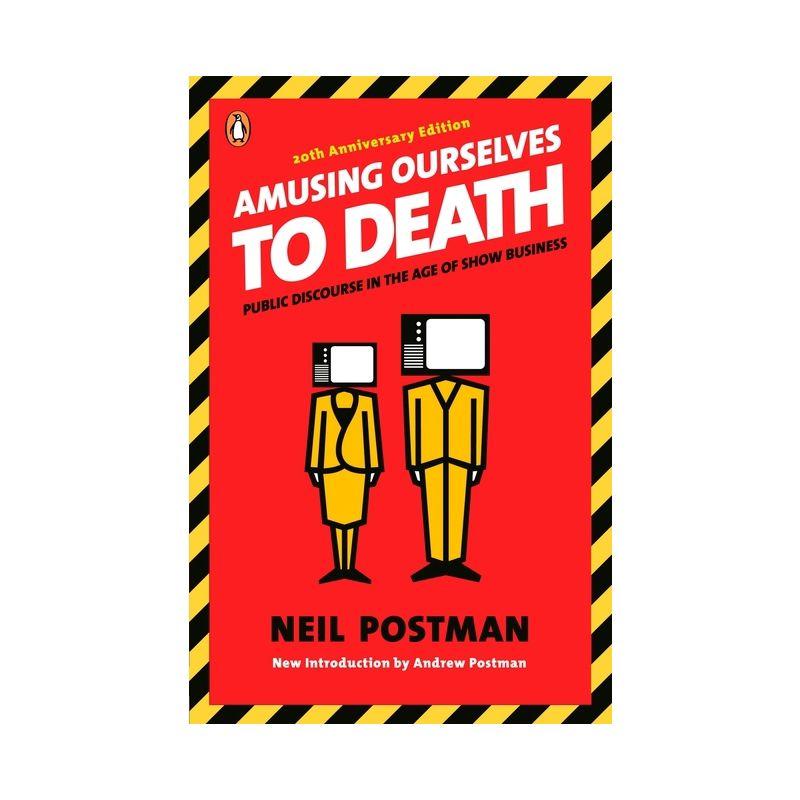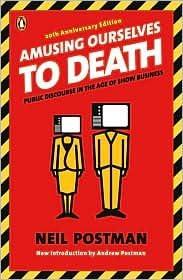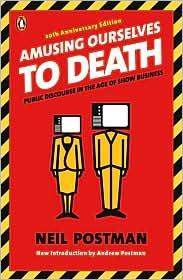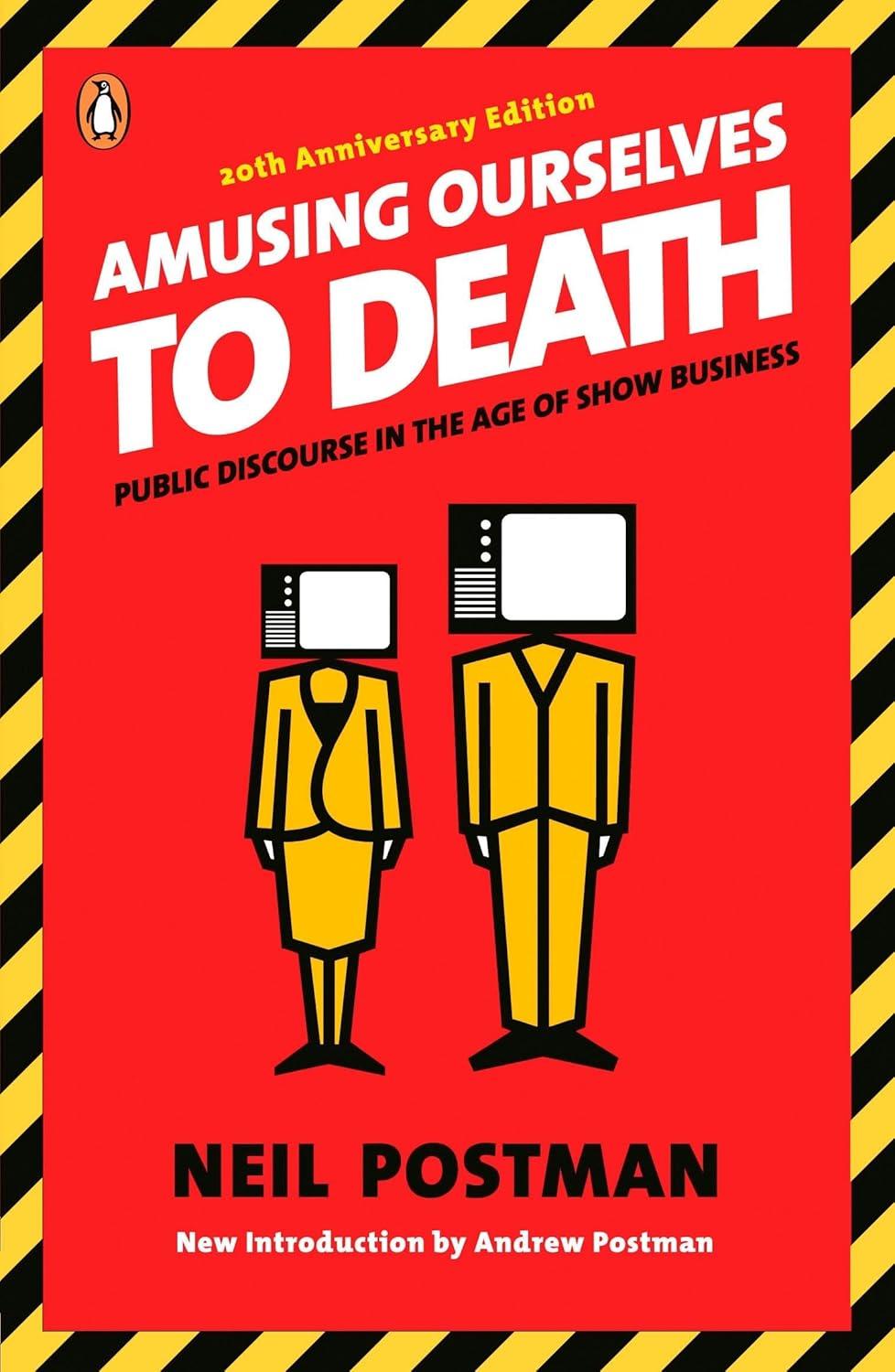1 / 5
Amusing Ourselves to Death - by Neil Postman (Paperback)
$12.59
Product details
Dive into Neil Postman's prophetic exploration of media's impact on politics, journalism, and society. This engaging paperback offers a powerful critique of how entertainment shapes our world, providing insights and a blueprint for reclaiming media for higher purposes.
Specifications
Dimensions
Height:7.7 in
Depth:6 in
Width:5 in
Weight:0.35 lb
Product details
Dive into Neil Postman's prophetic exploration of media's impact on politics, journalism, and society. This engaging paperback offers a powerful critique of how entertainment shapes our world, providing insights and a blueprint for reclaiming media for higher purposes.
Specifications
Dimensions
Height:7.7 in
Depth:6 in
Width:5 in
Weight:0.35 lb
You may also like
Looking for something similar? Check out these products.
Overview
We found this at two stores including Amazon.
Prices are currently low for this product, typically ranging from $13 to $15, and the lowest price we've seen is $11.49.
This product is also marketed as the




